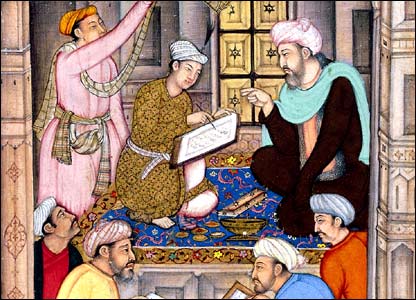
Islamic Philosophy and Theology
admin
- 0
kfoodfair2015.com – Islamic philosophy and theology, rich and diverse fields of intellectual inquiry, have been integral to the development of Islamic thought since the early days of the religion. These disciplines encompass a wide range of topics, including metaphysics, ethics, epistemology, and the nature of God, among others. The exploration of these subjects has led to the emergence of various schools of thought, each contributing to the vibrant tapestry of Islamic intellectual history.
The Emergence of Islamic Philosophy and Theology
The roots of Islamic philosophy and theology can be traced back to the 8th century, when Muslim scholars began to engage with Greek philosophical texts, which had been translated into Arabic. This encounter with Greek philosophy, alongside the Quran and Hadith, laid the groundwork for the development of Islamic philosophical and theological thought.
Key Schools of Thought
Kalam
Kalam, or Islamic scholastic theology, emerged as a response to questions about the nature of God, the universe, and human beings. The Mutazilites, one of the earliest schools of Kalam, advocated for the use of reason and rational argumentation in understanding religious texts. They believed in the createdness of the Quran and the free will of individuals, positions that were later contested by other schools, such as the Ash’arites.
Sufism
Sufism, the mystical dimension of Islam, focuses on the direct personal experience of God. Sufi philosophy and theology explore the nature of the soul, the path to spiritual enlightenment, and the ultimate union with the divine. Sufi thinkers like Al-Ghazali played a crucial role in reconciling Islamic mysticism with orthodox theology.
Falsafa
Falsafa, or Islamic philosophy, was heavily influenced by Greek philosophy, particularly the works of Aristotle and Plato. Philosophers like Al-Farabi, Avicenna (Ibn Sina), and Averroes (Ibn Rushd) contributed significantly to the fields of metaphysics, logic, and ethics, often integrating Islamic theological concepts with Greek philosophical ideas.
Philosophical and Theological Debates
The Nature of God
One of the central debates in Islamic theology concerns the attributes of God. The Mutazilites, for example, argued that God’s attributes are identical to His essence, while the Ash’arites maintained that God’s attributes are distinct from His essence.
Free Will vs. Predestination
The debate over free will and predestination has been a recurring theme in Islamic theology. The Mutazilites emphasized human free will and moral responsibility, whereas the Ash’arites leaned towards a more deterministic view, arguing that all events, including human actions, are preordained by God.
The Createdness of the Quran
Another significant debate revolves around the createdness of the Quran. The Mutazilites argued that the Quran was created by God, a position that was later rejected by the majority of Sunni Muslims, who believe that the Quran is uncreated and co-eternal with God.
Conclusion
Islamic philosophy and theology have been characterized by a dynamic interplay between reason and revelation, tradition and innovation. The various schools of thought and the debates they have engendered reflect the richness and diversity of Islamic intellectual history. From the rationalist approach of the Mutazilites to the mystical insights of the Sufis, and the synthesis of Greek philosophy with Islamic thought by the falasifa, these traditions continue to influence Muslim thought and identity. As the Muslim world navigates the challenges of the modern age, the legacy of Islamic philosophy and theology remains a vital resource for understanding and interpreting the Islamic tradition.


